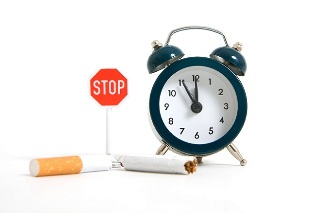
It's hard to find an adult smoker who won't regret his first cigarette, dreaming of giving up his addiction. An unpleasant odor or discomfort during flights or at work, which is paid for in private money (and, to a large extent), condemns the opinions of passers-by and family members, and is punished for smoke strikes. For all its disadvantages, people often wonder why it is impossible to quit smoking all of a sudden, or whether it will be just a plus.
Inside the smoker
There are two radically different camps between ordinary people and doctors in terms of getting rid of nicotine addiction. Some believe that "the tail is not cut in pieces", while others believe that if you suddenly quit smoking, it can have unintended health consequences.
Under the constant influence of nicotine on the body, some natural processes are changed:
- Constant hypoxia is observed in tissues. Red blood cells combine with carbon monoxide and can no longer carry oxygen. It is very dangerous for pregnant women, especially in the first and last trimesters.
- Immunity tone. The body is constantly poisoned by nicotine, another harmful component of tobacco, and becomes accustomed to protecting itself.
- The oral cavity is washed with saliva, which carries resins from the teeth and mucous tissues to the stomach, causing gastritis, other digestive disorders and nausea.
- The central nervous system is disrupted, there is a constant lack of oxygen in the brain, and the transmission of nerve impulses along the fibers is delayed.
- Smoking stimulates adrenaline levels, which increases blood pressure, dilates blood vessels and makes the heart beat faster.
- The brain produces dopamine in response to swelling. Hormone creates the illusion of pleasure, creates habit. The longer and longer a person smokes, the more tobacco smoke passes through him to enjoy it.
- Blood thickens, the walls of blood vessels become brittle. The number of strokes and heart attacks among those who like to lift is higher than among non-smokers.
A special danger is the simultaneous use of alcohol and smoking. The heart and blood vessels exert double stress from these destructive components. The brain, which consumes most of the oxygen and nutrients supplied to the blood, is primarily affected by alcohol and carbon monoxide.
In addition to nicotine, a cigarette contains many harmful substances, the most dangerous of which are known:
- Benzene.
- Chrome.
- Cadmium.
- Nickel.
- Uranium.
These elements cause cancer of the lungs, esophagus, oral cavity, larynx and pancreas.
Early loss of sexual power in men, a slow erection occurs at a young age due to circulatory disorders. The quality of the seminal fluid suffers, the sperm cells are less active, which leads to complete or partial infertility.
Smoking often prevents women from getting pregnant quickly, the mechanism of follicle maturation is disrupted, the level of the main female sex hormone - estrogen falls, menopause occurs faster in smokers, libido suffers. Often a woman continues to smoke while carrying a child, which provokes hypoxia in the fetus, the development of pathologies that can be found at birth or later. The risk of premature birth, stillbirth and severe toxicosis is high.
How the body responds to abrupt cessation of smoking
If a person suddenly decides to quit smoking, it is important to understand what will happen and what the consequences will be. It's hard to give up abruptly, but recovery is faster. It should be noted that the longer the practice of smoking, the more difficult the period of abstinence:
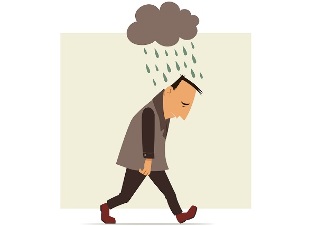
- Day 1. Joy, inspiration, belief in success, the body has not yet understood anything.
- Day 2. The first signs of "retreat" begin, a lifestyle change comes to mind. Irritation appears, I want to smoke.
- Day 3. All thoughts revolve around smoking, it is difficult to fall asleep, the feeling of emptiness inside. Rash may appear, peeling of the skin.
- Day 4. There is more oxygen in the blood, it is easier to breathe, sleep can be light and intermittent. Some people report noise in the head, ears, and slightly swollen limbs.
- Day 5. Peak period, smoking becomes unbearable, the probability of an accident is high. A cough is seen, sputum is difficult to come out, it is dark in color and has an unpleasant odor. Aromas and flavors gain new shades, become brighter and richer.
- Day 6. Sleep is disturbed again, hands tremble, mood changes from aggressive to depressed.
- Day 7. The body got rid of nicotine addiction. From this point on, any desire to lift is associated with only one habit, psychological attachment. By simulating known situations in a different way, it is worth eliminating everything that causes the desire to smoke. Replace your morning coffee with a cup of tea, dial a Rubik's cube for a phone call, and so on.
Over time, the body will be cleansed of decay products, accumulated resins and toxins. The volume of the lungs will be restored, the brain will begin to function more productively, clarity of thought will emerge, and the ability to learn will increase. Sleep will deepen, you will be full, you will be tired, and mood swings will disappear.
Immunity falls at first, a person easily gets cold. Against this background, bronchitis, tracheitis, laryngitis, stomatitis often occur. It can change the timbre of the sound, it can be crisp, crisp. You need to understand the cause of these phenomena and their connection with the body's transition to a nicotine-free regime. It is advisable to support yourself by taking vitamins, immunostimulants (ginseng, eleutherococcus).
to give up the habit

Quitting smoking is definitely worth it, the overall benefit outweighs the temporary discomfort. You can do the following to reduce the negative consequences:
- Do sports. Physical activity speeds up metabolic processes, blood circulation, improves heart function, improves mood, promotes healthy sleep and stabilizes blood pressure. Older and unprepared people should gradually increase the load, starting with long active walks and gymnastics.
- Review your diet. Fill your diet with high-quality, healthy products, excluding fast food and other food waste.
- In the first stage, take a medicine that dilutes the sputum and facilitates its excretion.
- Do not drink alcohol. Alcoholic beverages are not good in themselves, you want to smoke more under their influence.
- Instead of tablets to get rid of phlegm, a decoction of grass coltsfoot, calamus, nettle, elecampane is taken and a good result is obtained.
Every organism is individual, an elderly person with a bouquet of chronic diseases should consult a doctor when and how to best plan smoking.
In some cases, doctors actually recommend reducing the number of cigarettes, but they should not be completely eliminated.
Fine moments
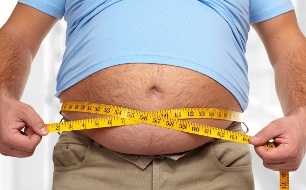
There are times when people are afraid to quit suddenly for fear of negative consequences:
- Pressure disorder. Patients with hypertension and those suffering from low blood pressure are confident that rejection will worsen. Your doctor will help you choose medications that stop the body's rejection reactions, and over time the situation will stabilize.
- Overweight. Many girls and men are afraid of gaining weight, some say that smoking really prevents hunger, but smoking itself does not help to lose weight. If you want to smoke first, eating can compensate for the feeling of emptiness. The taste is brighter and the food looks more attractive. If you approach it consciously, you will be able to lose weight.
- Pregnancy. A woman usually learns an interesting condition in 6-8 weeks, should immediately rule out a harmful factor, for which there will be no harm to the fetus.
- Tuberculosis. It can be psychologically difficult for people to quit smoking, which can be stressful and slow down their recovery. In either case, your doctor will tell you that you need to do this during an illness, or that you are waiting for a cure, and that you will forget about smoking forever.
Weeds and hashish are believed to be useful in quitting smoking. The bronchi and lungs clear faster, the nervous system calms down and the process is easier. There is no objective evidence for this, and smoking hashish, marijuana and other hemp products is no less harmful to humans than nicotine cigarettes.
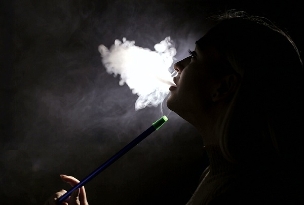
Efforts are being made to replace cigarettes with electronic counterparts, hookahs and vapes to alleviate psychological distress. Inhalation of vapors saturated with substances of unknown origin (often mixtures and for them there is no clear composition for filling stations) is very harmful, it is:
- Irritating to bronchi and lungs.
- Contains heavy metals and toxic substances.
- Causes allergies.
- Vapor causes broncho-pulmonary diseases.
Hookah smoke surpasses carbon monoxide cigarette smoke. All dressings have a pleasant odor that encourages people to breathe more deeply, and a large amount of the substance in them enters the bloodstream. At the 2008 WHO conference, he said that e-cigarettes had not proven to be as effective as an alternative to quitting.
Consequences of sudden refusal
The most difficult thing is to go through a period of liquidation, it is psychologically difficult for many people to admit that they have said goodbye to a part of their lives forever, even if it is negative, and in most cases this action is accompanied by:
- Irritation.
- I feel empty.
- Decreased body tone.
- Mood swings.
- Concentration disorder, confusion.
- Reduced performance.
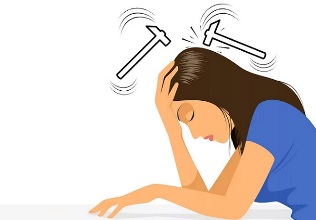
Physiological reactions may include:
- Sleep and appetite disorders.
- Temperature rise.
- Pain, sore throat.
- The onset of coughing.
- Headache, migraine.
- The pressure drops.
- Fast heartbeat.
- Frequent respiratory diseases.
Depending on the length of service, the number of cigarettes smoked daily, a person's age and health status, the symptoms disappear from one month to one year and gradually decrease in severity.
Summary
Quitting smoking is a new, free step. Without smoking:
- health improves;
- self-esteem increases;
- Conflicts with non-smoking relatives are resolved;
- saves money.
There are dozens of benefits to breaking free. Among the disadvantages of abrupt rejection of nicotine can be noted only short-term deterioration of well-being as a result of temporary psychological disturbances, withdrawal period and reconstruction of the body.

























